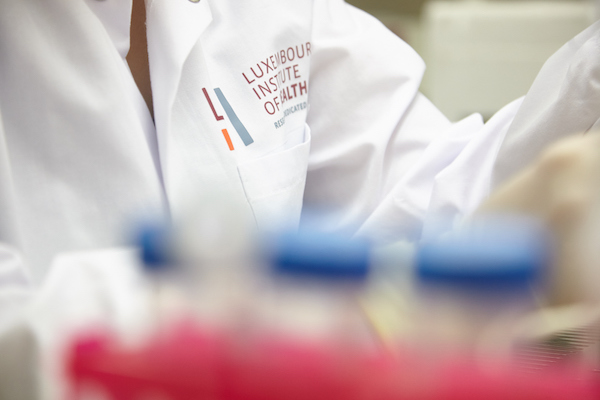
The Luxembourg Institute of Health (LIH), a public research centre in biomedicine, has published its activity report for 2016.
The Institute has three research departments specialising in the fields of infectious and immune diseases, cancer and public health, and the Integrated BioBank of Luxembourg (IBBL). 350 employees, including nearly 200 researchers, carry out its mission to generate biomedical discoveries and develop them into clinical applications.
Research at the LIH advances the concept of personalised medicine to offer treatments tailored to each patient.
Among the figures put forward by the Institute, 292 scientific articles were published last year, including 19 in scientific journals of very high international standing, five patent applications were filed, 42 partnerships with the private sector were initiated, while 192 collaboration agreements were signed with the academic and private sector, and 1075 new participants were recruited for health studies and clinical research.
On the financial side, 35 applications were accepted for funding of research projects by third-party organisations, and €10.9 million in funding was secured from external sources.
Promising discoveries, particularly in the fields of the intestinal microbiome and the cardiovascular diseases were made last year, and new research projects to study brain tumours, skin and breast cancer, and allergies were initiated.
The LIH also contributed, for the first time in a broad consortium, to global public health studies of common diseases such as obesity, diabetes, and hypertension, by providing national qualitative data.
The Institute continued to engage in the recruitment of control persons for the very large study of Parkinson's disease conducted by the National Centre for Excellence in Research on Parkinson's Disease (NCER-PD). Since the launch in 2015, more than 300 people without neurodegenerative diseases volunteered to serve as controls, helping to advance research for early diagnosis of Parkinson's disease and more effective treatments.
Many researchers have been rewarded for their outstanding work. This was particularly the case for Dr. Etienne Moussay and Dr. Jérôme Paggetti of the Department of Oncology, who received the FNR Award for Outstanding Scientific Publication from the National Research Fund for publishing an outstanding scientific article on Leukemia by 2015.
Others have been appointed to responsibility functions, such as Prof. Romain Seil, a researcher at the LIH Sports Medicine Research Laboratory and orthopedic surgeon at the Luxembourg Hospital, now president of the European Society of Sports Traumatology, Knee Surgery and Arthroscopy (ESSKA) for a period of two years.
Since October 2016, the research unit "Proteome and Genome Research Unit" is headed by a new officer, Dr. Gunnar Dittmar. This unit works with advanced technologies to better understand human diseases at a cellular and molecular level. Researchers are studying the complexity of tumors and their response to different treatments. Dr Dittmar is keen to promote this technological platform and to create new national and international collaborations.
At the end of 2016, LIH and the renowned German research centre "Deutsches Krebsforschungszentrum" (DKFZ) in Heidelberg signed an agreement for the creation of a new binational research unit called LOVIT - Laboratory of Oncolytic Virus Immuno-Therapeutics. Led by Dr. Antonio Marchini, it will be composed of seven to eight members and will have premises in both institutes. LOVIT will develop innovative new strategies for cancer control in the still-oncolytic field of virotherapy, a therapy that uses viruses to destroy cancer cells.
Thanks to important competitive funding from the National Research Fund to develop the training of young scientists doing a PhD in Life, two research and training programs for doctoral students specialising in immunology and oncology were created in 2016. Launched in partnership with the University of Luxembourg and several foreign universities, they will train more than 30 doctoral students in the course Of the next six years.








